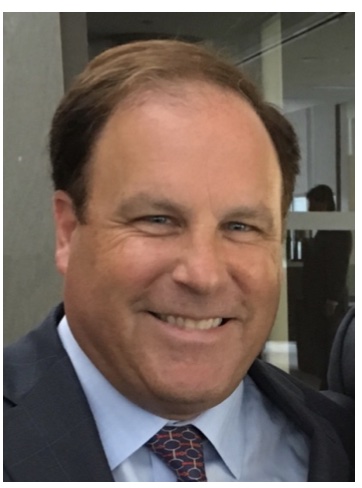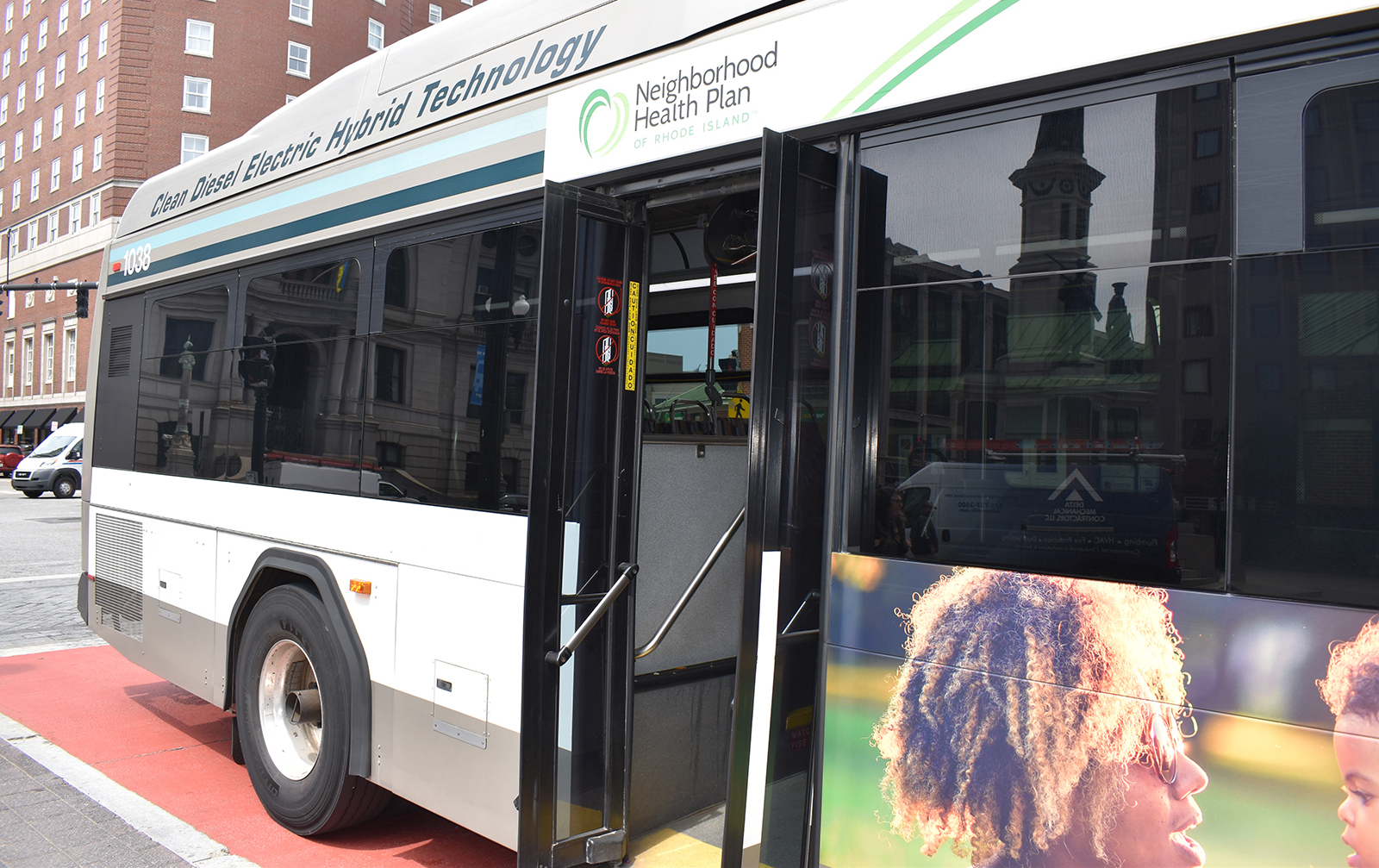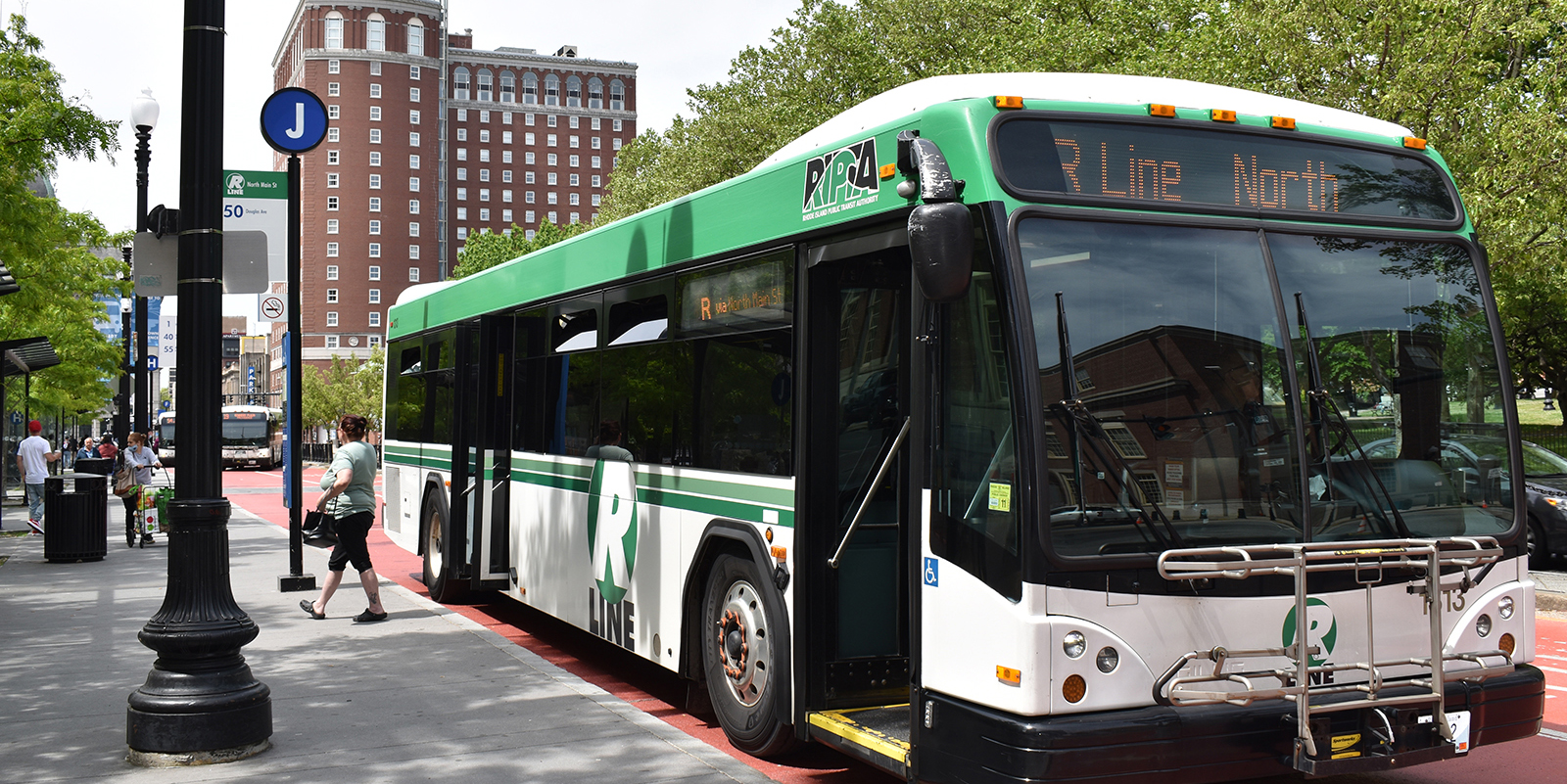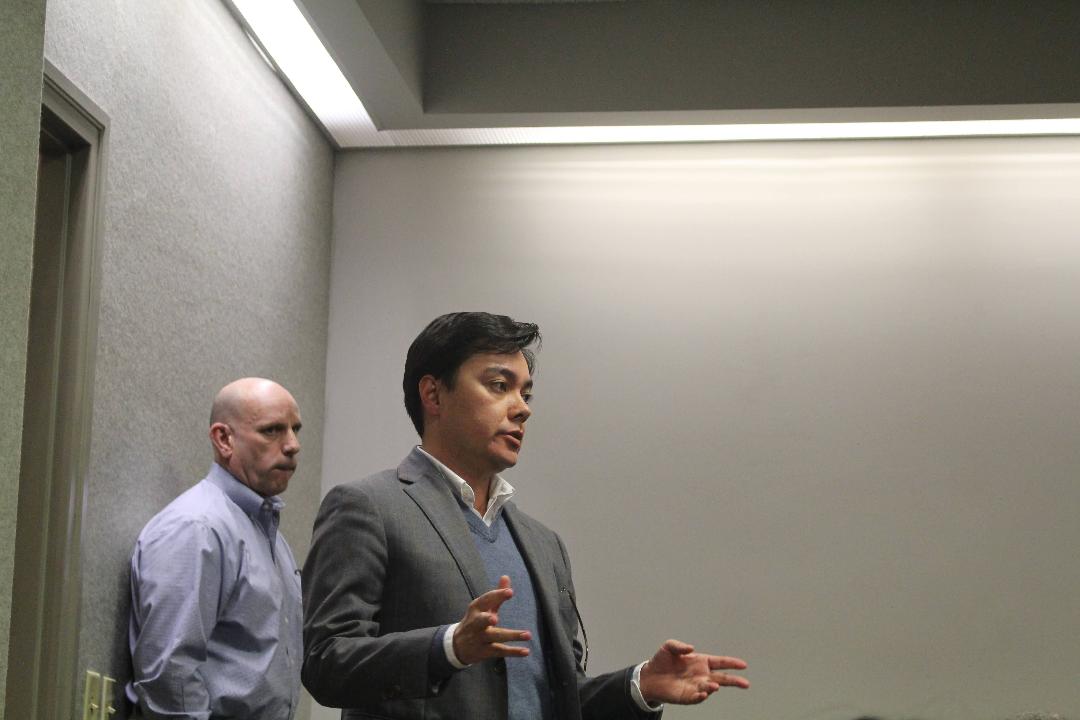‘People, Passengers’ Are What Makes Riding RIPTA ‘So Good’
September 1, 2023
Editor’s note: This story is a part of ecoRI News’ Rhody Riders series, a collection of stories about people who choose to live without a car and use a combination of walking, bicycling, and public transit to get around the Ocean State.
James Leach technically owns a car, but he often has to get all the way to North Kingstown if he wants to drive it, because he shares it with his son.
More often, the Providence resident chooses to ride the bus.
“It’s convenient for me,” he recently told ecoRI News over the phone, as he hopped off the hop-on-hop-off bus in Newport. He had taken the free shuttle and ferry from Providence to the seaside city the day before for a conference.
As the designated transit rider on the Rhode Island Public Transit Authority’s board of directors, Leach said his rides give him an “invaluable insight into the community dynamic and transit challenges.” Leach said he takes the bus a minimum of three times a week.
Leach noted he has always been environmentally conscious — in the 1990s, he helped pioneer brownfield development with the Environmental Protection Agency — so he rides the bus to reduce his carbon footprint.
“Any little bit that I can do to contribute,” he said.

Now that he’s on RIPTA’s board, riding also helps him learn the schedule and the wants and needs of RIPTA workers and riders.
Leach has been a part of or led several boards, including holding the position of chair for Rhode Island PBS and the Providence City Planning Commission. He decided to apply to be on RIPTA’s board to add to his understanding and because he believed he could bring something to the table with his experiences riding the bus.
Although he said that funding could always be increased and service improved, he appreciates how RIPTA is run “efficiently and effectively.”
He touts his love of RIPTA to people he knows and has even convinced a few folks to ride the bus more often. Leach persuaded a few men who are a part of a fraternal organization in Cranston, of which his son is the president, to take the bus to the meetings and helped them map out the route.
“It’s the best deal for $2 that you can find anywhere,” Leach said.
The aspect of RIPTA that Leach most admires is the enthusiasm and experience of the staff, he said. When he took the ferry shuttle, he said he saw a driver hop off his own bus to help a person who was lost.
“That’s what makes the system good,” Leach said. “It’s the people, the passengers, and the interaction.”
Categories
Join the Discussion
View CommentsRecent Comments
Leave a Reply
Your support keeps our reporters on the environmental beat.
Reader support is at the core of our nonprofit news model. Together, we can keep the environment in the headlines.
We use cookies to improve your experience and deliver personalized content. View Cookie Settings




Good to know that at least one person on the RIKPTA board regularly rides the bus.
Thank you James Leach for this positive view of RIPTA and taking the bus. As I often say, the system, and the commuter and Amtrak rail service, is often better than many non-users think it is, but there is a mindset that the system sucks and only vast improvement will get anyone to take it.
Try this: How many buses go each way each weekday between Providence and Newport? URI? the airport? Centerdale? I’ll post the answers later
I love riding the bus. The #1 is the most convenient for me. It goes every 20 minutes, every 40 minutes on weekends. The last bus from downtown on Sat. leaves at about 9:30, which means my husband and I cannot take it to downtown theaters and get back after a show.
The R bus is a mile from my house.
RIPTA has to commit to regular convenient service and maybe more people will take buses. “Commit” means months, if not a year. It doesn’t mean “oh, we tried for 6 weeks and no one takes the bus.” I lived without a car in the Boston area for years because a convenient bus was 2 blocks from my house and ran every 7 minutes during rush hour. The last time I took a bus from Pawtucket to Providence, I was on crutches and couldn’t drive or ride my bike.